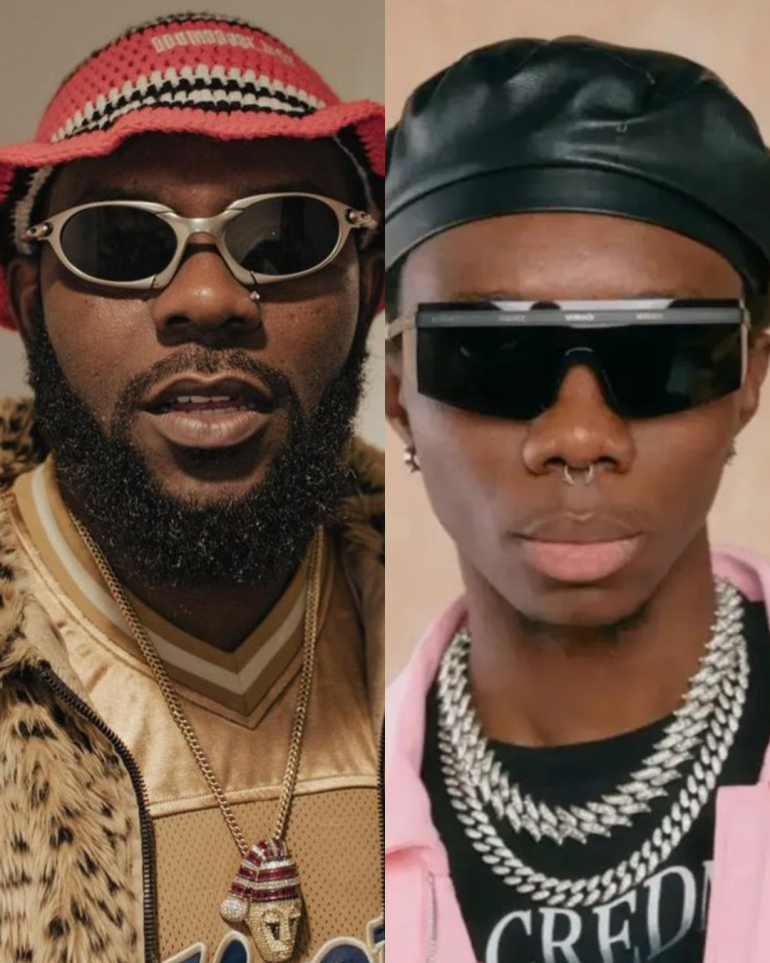What started as a lyrical jab has erupted into a full-blown rivalry, but the heated war of words between Blaqbonez and Odumodublvck might be the very thing Nigerian hip-hop needs to reignite its competitive fire.
For years, a quiet debate has simmered within the Nigerian music scene: is hip-hop dead? While Afrobeats continues its global domination, the country’s rap scene has been accused of lacking the vibrancy, competition, and headline-grabbing antics that defined its golden eras. Enter Blaqbonez and Odumodublvck, two of the genre’s most exciting and polarizing figures, whose recent feud has single-handedly thrust Nigerian rap back into the mainstream conversation.
The latest chapter of their rivalry unfolded after Blaqbonez, on the A-Q-assisted track “Who’s Really Rapping,” took a thinly veiled shot at artists who blend hip-hop with other genres, a style Odumodublvck has championed. This wasn’t just a stray diss; it was a direct challenge to Odumodublvck’s artistic identity and commercial success.
Odumodublvck’s response was swift and fiery. In a now-viral interview on Jusmen 105.7 FM, he didn’t just dismiss Blaqbonez’s claim to be the “best rapper in Nigeria”; he dismantled it. “Stop joking,” Odumodu warned, invoking the names of legends like M.I. Abaga, Vector, Phyno, and Olamide. “If you were, you would’ve won Best Rap Album at the Headies, you weren’t even nominated for Best Rap Single.”
This exchange goes beyond a simple ego trip. It represents a fundamental, ideological clash within Nigerian hip-hop. On one side is Blaqbonez, the self-proclaimed “Best Rapper in Africa” (BRIA), a lyrical purist who champions technical skill, intricate wordplay, and the traditional tenets of rap. His crusade is against the dilution of the genre, a fight to keep the “hip-hop” in Nigerian hip-hop.
On the other side is Odumodublvck, the face of a new wave that fuses rap with highlife, drill, and Alte sounds, creating a commercially potent and uniquely Nigerian hybrid. His success, including a record-breaking debut album, challenges the very definition of what a Nigerian rapper can be in the modern, Afrobeats-dominated landscape. For him and his supporters, innovation and cultural relevance are just as important as lyrical dexterity.
While some may dismiss this as another social media-fueled beef, its significance cannot be overstated. This is not just about who is the better rapper; it’s a debate about the soul of the genre. Is Nigerian hip-hop a niche art form for lyrical purists, or is it a dynamic, evolving sound that can compete on the charts?
This public and passionate conflict is forcing artists, fans, and industry stakeholders to engage with these questions. It has sparked countless online debates, playlists, and think pieces, generating a level of excitement around Nigerian rap not seen in years. The competitive energy is palpable, and it’s likely to push both artists—and their peers—to new creative heights.
Ultimately, whether you side with Team Blaqbonez or Team Odumodu, one thing is clear: their beef is a net positive for the culture. It has injected a much-needed dose of drama, competition, and, most importantly, conversation into a scene that was at risk of becoming stagnant. And for that, we should all be paying attention.


